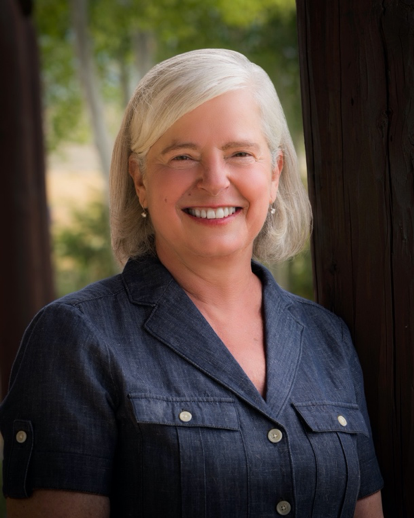Most of us in our 60’s start looking forward to the day when we are no longer dependent on employer paid health insurance or the marketplace and can go on Medicare. We envision a much simpler process and perhaps, naively, that the focus will be on getting our healthcare needs met.
Well, my transition was incredibly stressful. My husband retired in April 2022, and effective May 1, 2022, I went on Medicare. Knowing that I am on drugs that are off-label by the FDA for treating sarcoidosis, I started working with my patient navigator at the infusion company in February to prepare for the transition. I anticipated there might be some bumps along the way, and I wanted to be able to keep with my infusion schedule of every four weeks.

My May infusion was scheduled for May 13th, so I thought almost two weeks would be adequate time to get this all set up. My patient navigator at the infusion company informed me that under my new insurance my copay would be $2,630.50 and reminded me that since I was on Medicare, I could no longer use the Infliximab copay assistance card from the manufacturer which is such a nice benefit. When I told him that I thought my supplemental plan would cover the copay, I received this email from him:
The supplemental plan covering the 20% deductible isn’t true unfortunately… The reason the supplemental plan won’t cover any of the deductible or premium is due to your diagnosis being a non-covered diagnosis, through Medicare. If Medicare denies the coverage of your diagnosis, then your supplemental plan denies as well… Medicare has their own list of covered diagnoses and yours, sarcoidosis of lung with sarcoidosis of lymph nodes (D86.2), isn’t on their list. I can’t tell you why yours isn’t a covered diagnosis with Medicare simply because I just don’t know, I’m sorry to admit. I don’t know what process Medicare uses to determine which diagnosis is covered, and which isn’t.
This, of course, sent me into another tailspin trying to figure things out! I reached out to my primary care doctor who wondered if cardiac sarcoidosis was an approved diagnosis and if she could help by providing additional information. So, I asked my patient navigator that question, and received this response:
If your doctor just provided further clarification/information on your diagnosis that wouldn’t change how we bill the medication to Medicare. The diagnosis code is pretty set in stone once it’s given to you by your doctor. If you want to discuss the diagnosis change with your doctor, that is up to you and them on how they decide to continue. I just don’t know what or if that will work. Just know that if the MD decides to change your diagnosis code to meet the Medicare criteria, we would have to have a completely new prescription with the potential new diagnosis code attached to it, and then go about our process to obtain a new prior authorization with Medicare, and also make sure that we have clarifying clinical notes from the doctor that support the potential new diagnosis.
It was recommended that my doctor write a letter to Medicare, which she did, including copies to United Healthcare for my supplement and to Blue Cross Blue Shield for the drug coverage part. By May 11th, still no response from Medicare. On May 17th, Medicare denied the Infliximab infusions and I received this email from the infusion company:
We submitted the auth for your Infliximab to Medicare and it came back denied today, unfortunately… Medicare denied the Infliximab due to it not being on Medicare’s approved medication formulary list. They are wanting you to try at least two other medications; adalimumab and another drug first before switching over to Infliximab with the new plan.
I was shocked that Medicare would tell me what drugs I should be taking when I am being treated by some of the top sarcoidosis experts in the world. My primary care doctor, in consultation with my lead doctor at National Jewish Health, submitted an urgent letter of medical necessity and appeal to Medicare basically stating that if I didn’t receive the Infliximab that I could die and outlined the severity of my multi-systemic sarcoidosis. On the morning of May 19th, Medicare approved the Infliximab for the next year.
We had rescheduled my infusion for May 20th earlier in the week. On the afternoon of the 19th, I was informed that the infusion company courier couldn’t deliver the Infliximab until after 2 pm on the 19th. So, we rescheduled for May 23rd, a full 10 days after I was due for my infusion. My symptoms and pain got progressively worse the nearer I get to my infusion date, and that’s when it was every four weeks. At that point, I was at six weeks and miserable.
I call on Congress to reform insurance and address step therapy requirements and other access barriers that insurers and pharmacy benefit managers (PBMs) impose as part of a health plan or drug formulary. We must protect the patient from dangerous delays in access to life saving treatments recommended by the doctors caring for this patient.
To learn more about the need to addressing access barriers, visit www.letmydoctorsdecide.org.

At the age of 62 in 2018, Janet Mockovciak was diagnosed with sarcoidosis in her lungs and lymph nodes. Her doctors believed issues she had going back to 16 were potentially the beginning of her sarcoid journey. Since 2018, Janet has learned she also has sarcoidosis in her heart and small fiber neuropathy. She believes most sarcoidosis patients feel like they are all part of a huge experiment – trying different drugs and treatments to see what might work, but never being sure until it’s tried. Because everyone’s symptoms are different and organs affected are different, there is not one right answer. Yet despite these difficulties and unknowns, Janet finds new ways to ensure she can continue to do the things she loved doing before the diagnosis. Janet is retired from banking and has found meaningful roles through volunteering the education and arts space, and by helping start two non-profits and serving on non-profit boards, along with her work on FSR’s Patient Advisory Committee.
